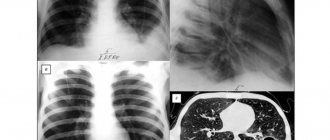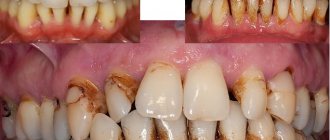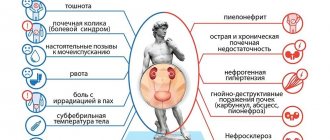Infectious diseases of the genitourinary system often worry men who prefer unprotected sex with different partners. One of the common sexually transmitted pathologies is gonorrhea (or gonorrhea), which in Russia infects more than 50 thousand people every year, according to statistics. The virus is accompanied by painful sensations, redness of the head of the penis and other unpleasant signs that cannot be ignored. Everyone should know about the symptoms and treatment of gonorrhea in men, because no one is immune from the disease.
Gonorrhea virus
Basic information about the disease
To understand what gonorrhea is and how it can be cured, you need to learn about the causative agent of the disease. Gonococcus, discovered in 1789 by Neisser, resembles a coffee bean in appearance. If you look at the pathogen under a microscope, you will notice one feature. During an exacerbation, the halves have absolutely the same shape and size, but when they become chronic, they change. If treated improperly, gonococci change shape, becoming spherical. Among the pathogens, there are several strains, some of which are difficult to treat. It is impossible to cure the disease without tests.
Gonococci most often live on the mucous membranes of the genitals. Pathology can affect the prostate, rectum, oral cavity, and organs of vision. It is worth noting that neisseria gonorrhoeae does not penetrate into cells, but is located on the surface. If the pathogen enters the blood, it quickly dies and does not spread throughout the body. You cannot develop immunity to this disease, and you can become infected more than once.
Typically, it takes about 5 days from the time of infection to the onset of symptoms. The incubation period for gonorrhea can last up to three weeks.
Routes of infection
The main route is sexual, but there is a risk of infection through contact. Outside the human body, gonococci continue to live until the secretion dries. The infection persists on personal hygiene items for up to 24 hours. It often happens that a husband has infected his wife with gonorrhea, but they do not have sex - washcloths, bed linen, and shared towels are to blame.
You definitely need to remember how gonorrhea is transmitted and what symptoms it is accompanied by. Often the carriers are people who are asymptomatic. They continue to spread the infection even during a passionate kiss. Infection with gonorrhea occurs when the microbe gets on the mucous membranes if they have ulcers or wounds.
The most likely cause of the disease is unprotected sex with a carrier of the infection, but we must take into account how you can also become infected with gonorrhea. There is a risk of getting sick by using someone else's washcloth or towel. This can happen to older people, children and those with weakened immune systems.
Types and forms of the disease in men
Gonococcal infection in men is insidious because it has many types. Gonorrheal urethritis and proctitis are more often diagnosed. As already mentioned, the disease can affect not only the penis or rectum, but also other organs. Gonococcal stomatitis, pharyngitis, infection of the eyes, skeletal system - all this can be caused by a pathogen. Disease classification:
- Fresh gonorrhea (lasts up to 2 months). It is divided into acute, subacute and asymptomatic course of the disease. Symptoms appear within two weeks after infection, the discomfort increases every day.
- Chronic gonorrhea (overflows from fresh after 2 months). The disease is characterized by the absence of obvious signs, which is why it is considered the most dangerous form. A sick man does not rush to see a doctor, because the pain is weak or intermittent. The absence of symptoms does not mean that the pathology has resolved on its own.
Irreversible consequences occur precisely with chronic gonorrhea on the penis, since the pathogen is insensitive to treatment. Carriage of gonococcus cannot be ruled out - the young man has gonorrhoeae in his body, but it is not accompanied by the development of pathological processes. Despite the absence of changes in well-being, the person remains dangerous to others.
Gonorrhea can masquerade as viral and sexually transmitted diseases. Signs of gonorrhea often resemble syphilis, chlamydia, ureaplasmosis, mycoplasmosis.
What is important to know
Along with gonococcal inflammation, sexual partners can get gonorrheal urethritis, endocervicitis, bartholinitis, proctitis, endometritis, salpingoophoritis, pelvioperitonitis.
Gonococcus especially easily affects organs with single-layer epithelium: the urethra, the excretory ducts of the Bartholin glands, the cervix and body, and the uterine tubes. The paraurethral passages on the epithelium on top of the ovaries and the mucous membrane of the pelvic peritoneum become inflamed. For example, gonorrheal colpitis (inflammation of the vaginal mucosa) in women occurs during pregnancy, during menopause and in infancy. In this case, numerous adhesions can form due to the rapid loss of fibrinogen into the fibrin, which contains the inflammatory fluid.
Blenorrhea in a newborn
Inflammatory process in the Bartholin gland
Fresh or acute gonorrheal inflammation usually lasts 2 months with an incubation period of 2-3 weeks. But it will do less harm, since it is easier to treat than the latent (hidden) form of the disease and the chronic one.
Chronic inflammation does not manifest itself with obvious symptoms, and gonococci are difficult to detect when examining cultures and smears. Carriers of the infection (usually women) consider themselves healthy, but in fact they are sources of the disease. In men, symptoms manifest themselves more noticeably with an incubation period of 2-5 days, maximum 2 weeks.
Symptoms of gonorrhea in men
The latent course of tripak in most cases has no signs. Occasionally, a man experiences pain during urination and redness on the head of the penis. However, many attribute this to allergies or poor hygiene.
Acute gonorrhea has the following symptoms in men:
- itching and burning;
- pain when urinating in the urethra;
- discharge of pus (at the beginning of the pathology it appears only with pressure);
- frequent urination if the causative agent Neisseria gonorrhea in men has moved up the urethra;
- discomfort during sex, decreased libido.
Advanced gonorrhea causes serious changes in the body. The pain goes to the testicles, rectum, lower abdomen, lower back. There is an enlargement of the lymph nodes in the groin, as well as tissue swelling, erosions on the mucous membranes, and blood in the discharge. The infection causes signs of general intoxication: fever, chills, headache, nausea. Symptoms of the disease in the throat resemble tonsillitis, and if the organs of vision are affected, they resemble conjunctivitis.
Most often, no more than a week passes from the moment of infection to the peak of the disease, but how long it takes for gonorrhea to appear in men depends on the state of health in each case. Gradually the symptoms become dull, but this does not indicate recovery. The chronic form occasionally bothers a man, but many begin treatment only when the pathology causes complications.
Symptoms of latent gonorrhea:
- the release of pus like a “morning drop”, while the smell of the discharge is unpleasant;
- redness;
- slight itching.
Often the cause of such manifestations is improper self-treatment.
How to quickly cure gonorrhea
For quick and correct treatment, you must first determine the form of the disease.
Gonorrhea has 3 types: acute, chronic and subacute.
Before prescribing treatment, it is necessary to undergo tests and check whether there is an infectious agent in the body and where it is located.
Next, the patient undergoes an antibiotic sensitivity test and then receives a doctor’s order regarding his further treatment.
If the disease has appeared quite recently, then gonorrhea is treated with one injection, which kills gonococci in the body.
However, with a more progressive degree of the disease, such a prescription will not work.
Diagnostics
The first signs of gonorrhea infection are specific and resemble a number of other sexually transmitted diseases. If fresh gonorrhea is not difficult to detect through examination and tests, then several methods are used to detect chronic gonorrhea:
- bacteriological - biomaterial is collected from the urethra and anus, the accuracy of the analysis reaches 90%;
- double-slope test - the patient needs to give urine in two portions; the diagnosis is confirmed if gonococci are found in only one portion;
- PCR - polymerase chain reaction is also considered an informative diagnostic method that allows you to identify the disease at the initial stage;
- immunological sensitization - administration of a protein drug, after which delayed-type hypersensitivity is observed within 24 hours.
You can often find a rapid test in pharmacies that shows the presence of bacteria. In appearance and principle of action it resembles a pregnancy test - the fusion of antibodies with gonococcus colors the strip in a bright color. You should not trust this method of research 100%. The test often shows a negative result in the early stages. It is impossible to say exactly on what day gonorrhea appears in men, and conducting research on your own every day is costly.
Timing of treatment for gonorrhea
How quickly is gonorrhea treated?
The duration of treatment is also influenced by the severity of the disease and the patient’s individual tolerance to the drugs.
The duration of the course of treatment is also influenced by the severity of the disease and the patient’s individual tolerance to the drugs.
As already mentioned, a mild form of gonorrhea is treated within one day. But most often the course of treatment for gonorrhea is 1-2 weeks. If the case is particularly advanced, then a month.
Methods of treating the disease
Timely therapy allows you to cure fresh gonorrhea without complications. In the case of incorrectly selected tablets, it will not be possible to avoid disturbances in reproductive function. It is possible that a form will develop that is practically untreatable. Treatment of gonorrhea in men depends on many factors, so you cannot take medications on your own. The duration of treatment is influenced by the type, form of the disease, duration, and characteristics of the body.
Drug treatment
It is important to use drugs not only to combat the pathogen, but also to relieve discomfort. Having identified gonococci in a smear in men, antibiotics and antibacterial agents are prescribed, for example:
- Penicillin;
- Streptomycin;
- Metronidazole;
- Sumamed;
- Ceftriaxone;
- Eratsin;
- Norsulfazole;
- Trichopolum;
- Bicillin.
The dosage of Azithromycin for gonorrhea, like all other medications, is adjusted by a doctor. Antibiotics have side effects, so they should not be used uncontrollably.
For treatment with antibacterial drugs, instillations into the urethra or enemas into the anus are prescribed. This treatment method is suitable only for subacute or chronic forms; it cannot be used during an exacerbation. Severe pain can be relieved with analgesics, and itching can be relieved with antihistamines.
After therapy (after 7-10 days), it is necessary to undergo a bacterioscopic examination again to see the effect of the medications. Serological testing is carried out three times - 3, 6 and 9 months after the end of taking the drugs. How long gonorrhea in men is treated depends on the severity of the disease.
Other ways to get rid of the disease
It is not recommended to use unconventional methods to treat gonorrhea in men at home in order to avoid the development of complications. No homemade ointments, lotions or decoctions will help destroy gonococcal infection. Their action is aimed at reducing inflammation, rash and itching. They can only be used in conjunction with pharmaceutical products, after consulting with your doctor. Physiotherapy (laser and magnetic therapy, electrophoresis, ultraphonophoresis, ultraviolet irradiation) are allowed only during the period of remission.
Experts recommend getting a gonococcal vaccine to increase the body's ability to fight the disease. After the inflammation has passed, it is possible to conduct a course of treatment with immunostimulants.
What antibiotics to treat gonorrhea
Treatment of gonorrhea comes down to taking special antibiotics and drugs to strengthen the body's immune system. It is also recommended to take a vitamin complex after treatment.
The most effective drug today is amoxicillin. These are penicillin tablets that effectively fight gonococci. The patient's condition improves very quickly after taking the drug.
However, it is better not to self-medicate and, at the first opportunity, visit a venereologist to adjust the treatment.
Possible complications
Untimely treated and neglected gonorrhea leads to prostatitis, narrowing of the urethra, impotence, infertility, and testicular necrosis. Gonococci affect the vas deferens, and this is fraught with funiculitis and purulent prostatitis. Over time, inflammatory processes affect not only the urethra, but also the bladder, kidneys, and testicles.
On the penis, gonorrhea provokes a narrowing of the urethra, which causes not only difficulty urinating, but also severe pain, septic kidney damage, and the formation of fistulas. It is impossible to get rid of such complications without surgery. In addition, more serious pathologies may be hidden under the disease, for example, gonorrhea and syphilis have similar symptoms, but are treated with different drugs.
Causes
The causative agent of the disease is gonococcus (Gram-negative diplococcus), despite its prevalence, it easily dies when dried out, in an acidic environment, or exposed to the weakest antiseptics. Therefore, infection through household items is extremely rare.
The main cause of gonorrhea in men is unprotected sexual intercourse with a carrier of the bacteria. The most common transmission of the disease is during sexual intercourse without the use of protective contraception (condom).
When infected during sexual intercourse, gonococci affect men:
- urethra;
- mucous membrane of the genitourinary organs;
- subepithelial connective tissue;
- lymphatic vessels.
The tissue irritation is so strong that changes appear on them in the form of:
- swelling;
- infiltration;
- suppuration;
- scarring;
- epithelial destruction.
There is no innate immunity with gonorrhea, and acquired immunity is also not formed, so the same person can become infected more than once.
Unprotected sexual intercourse is the most likely cause of the disease.
Preventive measures
Gonorrhea is transmitted sexually, so promiscuity should be avoided. Even barrier contraception does not protect 100% from sexually transmitted diseases. To avoid infection through household means, it is recommended to follow the rules of intimate hygiene and not use other people’s towels and washcloths. It is necessary to regularly see a venereologist to exclude the chronic course of the pathology. Uncomplicated gonorrhea is much easier to treat than its consequences.
Often men delay visiting a doctor, not wanting to talk about problems with an intimate part of the body. Do not be shy about a specialist, because we are talking about your own health. In conclusion, it must be said that the lack of competent therapy leads to infertility in most cases.
Incubation period
The incubation period of gonorrhea in men is short - from 2 to 5 days. The first symptoms may appear within the first week after infection. In case of decreased immunity or antibiotic therapy with irrational dosage, the incubation period may increase to 3 weeks.
Often this period increases in those patients who self-medicated with folk remedies for gonorrhea. That is why it is so important to contact specialists in a timely manner - a venereologist or andrologist.
Routes of infection by microorganism
Patients are often interested in the question of how men become infected with gonorrhea.
There are several options for transmitting infection from person to person.
Sexual tract
The sexual method of spread of a pathogenic microorganism in a population is most widely known.
The pathogenic microorganism primarily affects the mucous membranes of the genital tract.
Therefore, it is quite capable of being found in the secretions of the genital organs.
And, when a sick person comes into contact with a healthy one, previously intact (untouched) tissues are affected.
As a result, infection occurs and symptoms of the disease develop.
Since it is not important for gonococcus which mucous membranes are affected, it is able to multiply in the oral cavity and rectum.
Consequently, it is not only classic sexual contacts without protection that pose a danger.
You should also beware of anal and oral contact with sick people.
Contact path
It is believed that gonococci, which cause pathogenic changes in the body, do not survive well in the environment.
In principle, as doctors note, this is true.
However, on damp things at room temperature, gonococcus can survive for a day, and sometimes more.
Naturally, if a healthy person uses the infected things of a patient, infection may well occur.
Vertical path
Often a woman with gonorrhea decides to become pregnant and subsequently have a child.
However, she may not be aware of her illness.
A man can infect his woman during sexual intercourse, and as a result, the baby will be at risk.
The pathogen will not pass through the transplacental barrier, but will enter the child’s body during childbirth.
In boys, the eyes and lungs are primarily affected, but the genital tract may also be involved.
Sex with gonorrhea
Patients are often interested in the question of whether sex is allowed with gonorrhea.
If you ask a dermatovenerologist about this, his answer will be strict and unambiguous.
Any sexual contact, even if protected by a condom, is prohibited!
There are several reasons for this.
Firstly, sexual contact has an irritating effect on the genitals.
Naturally, the mucous membranes already injured by gonococci will be even more injured.
This will lead to an exacerbation of symptoms and rapid progression of the disease.
To avoid this, they refuse sex.
Secondly, a person with gonorrhea poses a danger to his sexual partner, as he can infect him.
Sometimes even condoms don't save you.
Since they have the ability to tear, and then their ability to protect against infection is not regarded as effective.
It is also important to remember that if symptoms of gonorrhea develop, it is worth checking not only the man himself, but also his partner.
After all, the disease can be completely asymptomatic in some patients.
Because of this, re-infection is possible from a person who has not undergone timely and complete treatment.
Treatment approaches
Treatment in men should begin as soon as the first symptoms are detected and a final diagnosis is established.
It is important to remember that this infection does not tolerate attempts to self-medicate.
Because of them, the patient may encounter various complications of the inflammatory process, as well as chronic infection.
But getting rid of chronic gonorrhea is much more difficult than getting rid of its acute form!
The main drugs for treatment in men are antibiotics.
They can affect a pathogenic microorganism, disrupting its vital processes and leading to its death.
Doctors may prescribe the following antibiotic drugs:
- Bicillins
- Streptomycin
- Penicillin
- Ceftriaxone et al.
It is important to remember that choosing antibiotics, their dosage and frequency of administration on your own is prohibited.
If a person chooses an antibiotic for himself, he risks the development of drug resistance in the bacteria.
It will not be easy to overcome later.
As a result, the disease becomes chronic and will lead to unforeseen complications.
Patients can be prescribed Pyrogenal and Methyluracil as immunocorrectors.
The drugs activate the immune system and help the body fully fight infection.
In severe cases, it is possible to vaccinate against gonococcus using a special vaccine.
It also activates the body's defenses to fight bacteria.
Prevention
The most effective way to prevent the disease is to avoid casual sex. In the event that this cannot be avoided, you should definitely use a protective agent - a condom.
In addition, there are also gonorrhea pills for men. If you are confident that your partner has gonorrhea, then antibacterial prophylaxis is recommended. To do this, you need to take a 400 mg Cefixime tablet. However, this method should not be abused, since bacteria often adapt to the drug, and this can lead to ineffectiveness of subsequent therapy.
Preventive measures also include following normal hygiene rules:
- washing hands with soap after defecation and urination;
- use of individual toiletries.
Traditional medicines are not applicable for this type of disease; their use can lead to various complications.
Attention! At the end of unprotected sexual intercourse, it is recommended to urinate to cleanse the urethra, after which the genital organ should be washed with soap and treated with Miramistin or a weak manganese solution.
You can protect yourself from infection if you follow the rules of hygiene and use protective equipment during sexual intercourse. Gonorrhea is a disease that is very easy to prevent. Refusal of unprotected sex and normal hygiene rules will completely protect you from an unpleasant infection.










